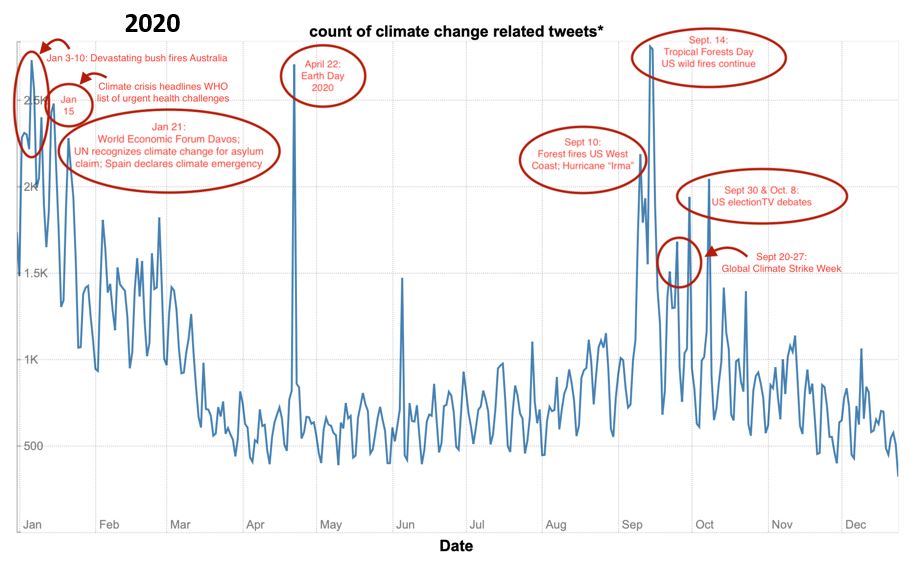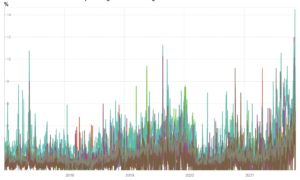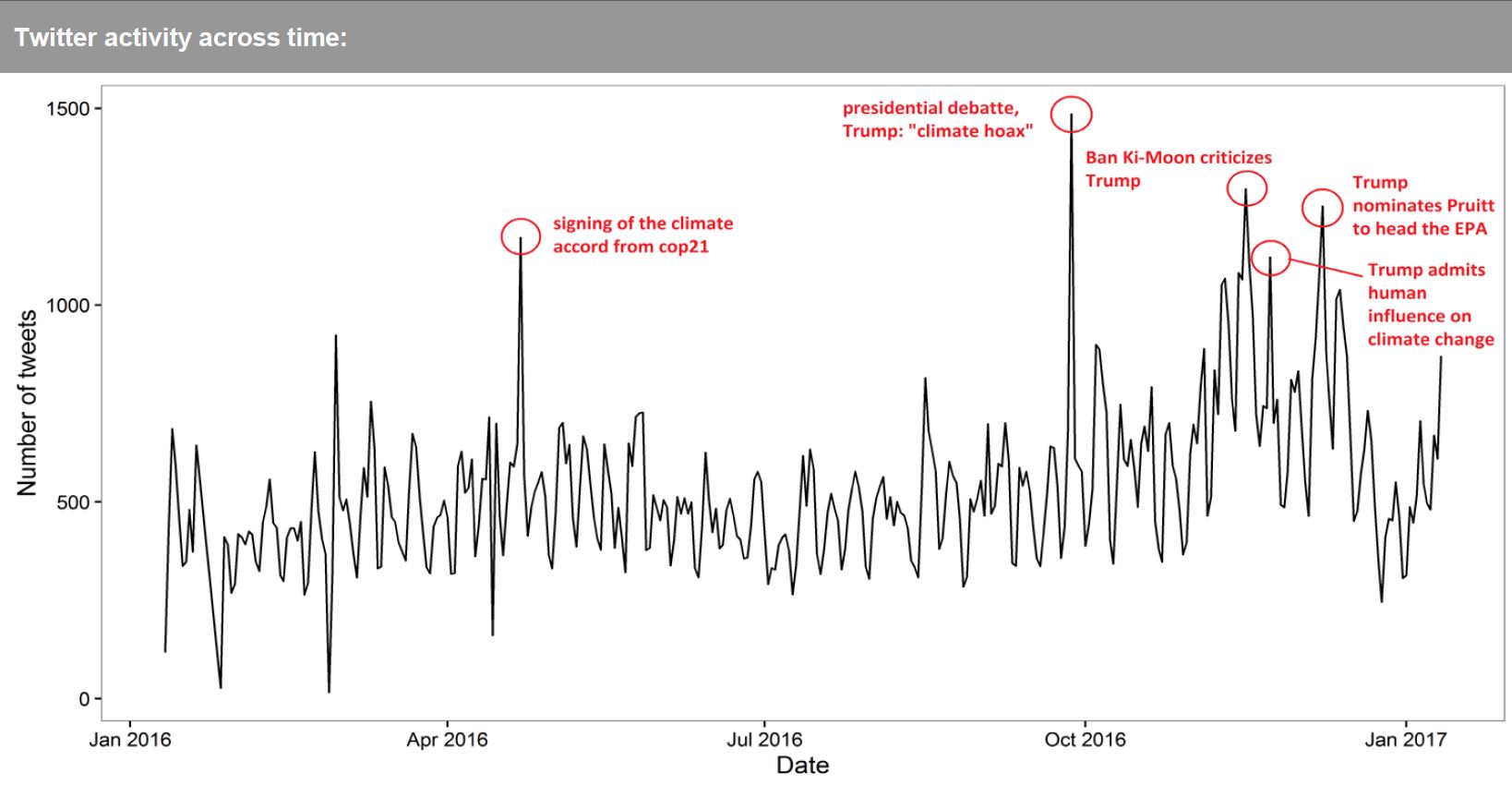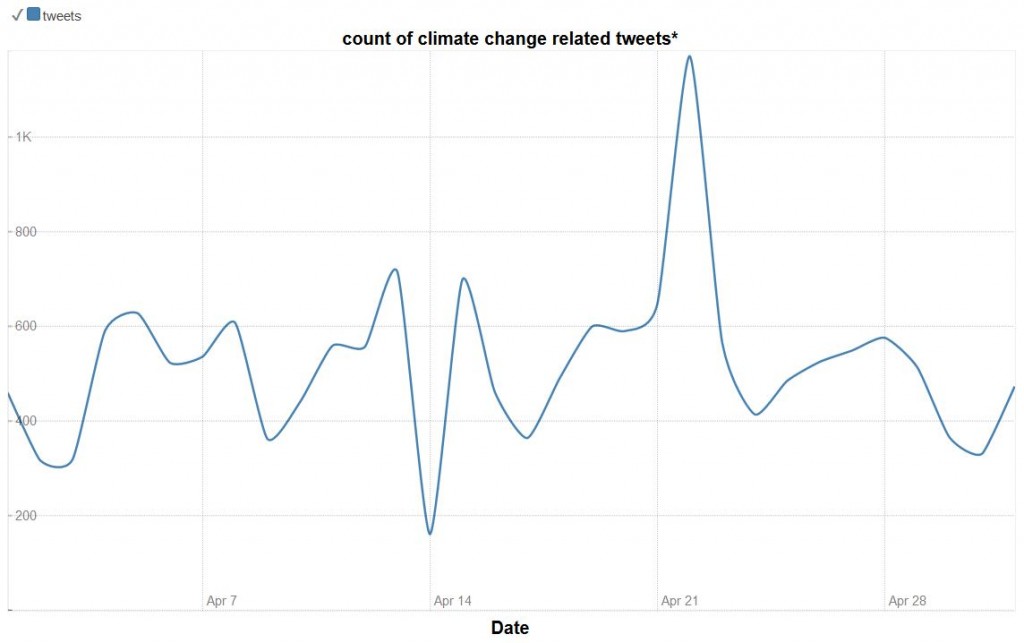by Fenja De Silva-Schmidt
After the outstanding year 2019, attention for climate change on Twitter in the past year quickly dropped to the level from the years 2018 and before. The harsh decline directly coincides with the rising worldwide attention for the “new” Corona virus later named Covid19, which caused the global pandemic the world is still struggling with. This looks like a prime example for the “Crowding-Out Effect”: Environmental topics tend to be pushed out of media reporting and public attention in times of crisis (Djerf-Pierre 2012).
Nevertheless, climate change punctually received high attention on Twitter. In the first months of 2020, the topic was still as high on the agenda as in the end of 2019, with natural and political events triggering peaks of attention.

*The Online Media Monitor on Climate Change Coverage (short form: OMM) collects tweets related to climate change if they contain at least one of the search strings #climatechange OR “climate change” OR “global warming” OR Klimawandel and receives at least 5 retweets. Read the OMM Guide to get more details about the methods and take a look at the error log file to get information about server problems. Continue reading 2020 on Twitter – Was there a topic besides Covid19?




